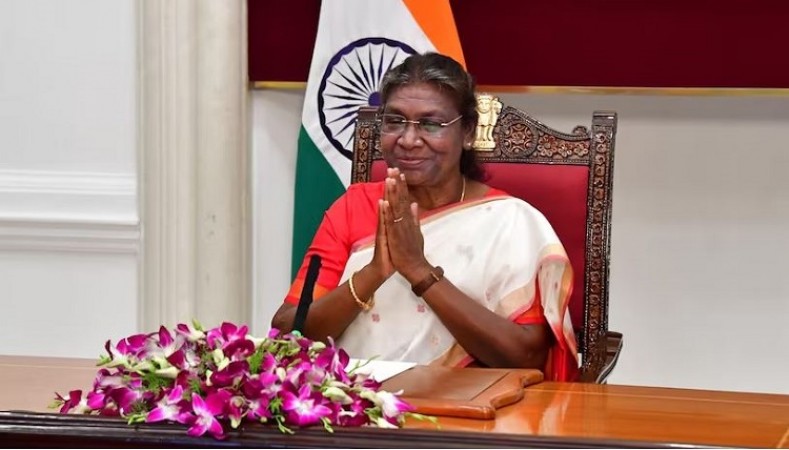
NEW DELHIH: President Droupadi Murmu has given her official approval to the Women's Reservation Bill, thereby elevating it from a historic parliamentary achievement to a full-fledged law. This momentous development occurred on September 29, marking a significant milestone for gender equality in India.
In a noteworthy move, the Government of India promptly issued a gazette notification, formally recognizing the transformation of the Bill into an Act following the President's endorsement.
The legislation, officially referred to as the Nari Shakti Vandan Adhiniyam, represents a bold initiative aimed at reshaping the political landscape by reserving one-third of the seats in the Lok Sabha and all state assemblies for women. This measure was met with resounding support in the Lok Sabha, where 454 Members of Parliament cast their votes in favor of the bill, while only two opposed it. The dissenting voices sought an additional sub-quota specifically catering to women from the Other Backward Class (OBC) and minority communities.
This law's enactment is a significant step towards enhancing women's participation in the highest echelons of governance, fostering inclusivity, and amplifying the voices of women in Indian politics. It reflects a progressive stride towards gender parity and the empowerment of women in the nation's decision-making processes.
Currently, the Lok Sabha, India's lower house of Parliament, boasts a representation of 82 women members. However, with the implementation of the Women's Reservation Bill, this number is poised to undergo a significant transformation, and the chamber should ideally see a minimum of 181 women representatives. This remarkable shift promises to bridge the gender gap in the political arena and bolster female participation in shaping the nation's policies and legislation.
The impact of this legislation extends beyond the Lok Sabha, as it will also bring about substantial changes in the composition of Legislative Assemblies across the country. Presently, in 20 States and Union Territories, women's representation in these assemblies stands at less than 10%. With the Women's Reservation Bill in force, these figures are expected to rise significantly, further advancing the cause of gender equality in India's political landscape. This development signifies a powerful stride towards inclusivity and the empowerment of women in governance at both the national and state levels.
President Droupadi Murmu Visits Indore: Follow These are Traffic Diversions Implemented in the city